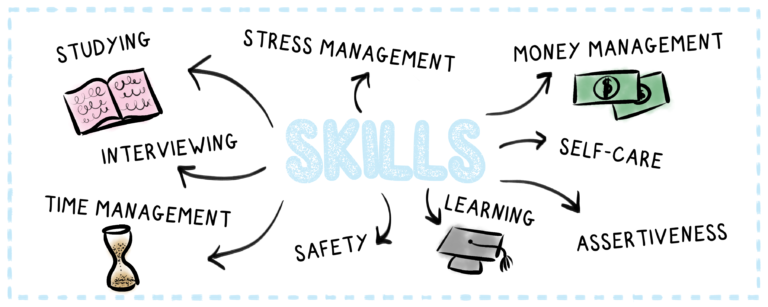Living with roommates can be an enriching experience, fostering friendships and shared memories that last a lifetime. However, it’s not uncommon for conflicts to arise in shared living spaces. At eRezLife, we understand the importance of maintaining a positive living environment, which is why we’ve put together this guide to help you navigate and resolve roommate conflicts effectively.
When matching roommates, it’s essential to prioritize compatibility, communication, and mutual respect. Take the time to assess potential roommates’ lifestyles, habits, and preferences to ensure alignment with your own. Consider factors such as sleep schedules, cleanliness standards, and noise tolerance to minimize potential conflicts down the road. Additionally, communication style and conflict resolution skills are crucial aspects to consider when selecting a roommate. By building a strong foundation of trust and understanding, we help students create positive, honest, and harmonious living spaces.
Understanding the Dynamics of Roommate Conflicts
Understanding the dynamics of roommate conflicts requires a nuanced approach that acknowledges the diverse backgrounds, personalities, and experiences each roommate brings to the living environment. Variations in communication styles, cleanliness habits, and personal boundaries can contribute to misunderstandings and tensions within shared living spaces. Additionally, external stressors such as academic pressures or personal challenges can exacerbate conflicts, highlighting the importance of empathy and open-mindedness in resolving disputes. By recognizing and respecting these differences, roommates can cultivate a culture of understanding and cooperation, fostering positive relationships and creating a supportive living environment where everyone feels valued and respected. To achieve this, encourage roommate pairs to incorporate the following strategies and discussion points into their roommate agreements:
- Establish Clear Communication Channels: Set up regular check-ins or meetings to discuss any concerns or issues that may arise.
- Create a Cleaning Schedule: Determine a fair rotation for cleaning tasks to ensure that shared spaces are kept clean and everyone contributes equally.
- Quiet Hours: Agree on designated quiet hours to ensure that everyone has the opportunity for rest and relaxation without disturbances.
- Establish Rules for Guests, Overnight or Otherwise: Set guidelines for having guests over, including how often and for how long, to ensure that everyone’s privacy and comfort are respected.
- Allocate Storage Space: Define individual storage areas to prevent clutter and ensure that everyone has their own space for personal belongings.
Recognizing the impact of cultural variations, past experiences, and individual values on interpersonal relationships is also necessary for understanding roommate conflict dynamics. Roommates may have differing expectations for sociability, privacy, and shared responsibilities, which can cause friction if not handled beforehand. Unresolved confrontations can worsen over time, hurting not just the people involved but also the general environment of the living area. Roommates can negotiate issues constructively by encouraging open communication, empathy, and mutual respect, which strengthens their relationships and fosters a sense of belonging and community in their shared house.
Communication & Boundary Setting
Encouraging roommates to discuss and document ground rules regarding noise levels, cleanliness standards, and shared responsibilities is beneficial in creating a healthy living environment. These discussions should be approached with openness and consideration for each individual’s needs and preferences. Strategies for roommates to achieve this understanding include:
- Scheduling Regular Roommate or House Meetings: Regular meetings provide a structured opportunity for roommates to come together and discuss various aspects of their living situation. These meetings can cover topics such as upcoming events, concerns or grievances, house rules, and plans for shared cleaning and maintenance responsibilities.
- Discussing Roommate Expectations: This involves open and honest conversations among roommates to clarify each individual’s expectations regarding their living arrangement. Discussions can include topics such as cleanliness standards, noise levels, use of shared spaces, guests, and personal boundaries.
- Promoting Dialogue Using Active Listening Techniques: Active listening involves fully concentrating on what the speaker is saying, understanding their message, and responding thoughtfully. This encourages open communication, fosters empathy, and helps prevent misunderstandings.
- Regularly Evaluating Roles and Responsibilities: Over time, dynamics within a shared living space may shift, and individual responsibilities may need to be reassessed. Regular evaluations allow roommates to review the distribution of chores and other responsibilities to ensure fairness and address any issues that may arise.
By fostering an environment where everyone feels heard and valued, roommates can address issues proactively and prevent misunderstandings from escalating into larger conflicts.
Conflict Resolution Strategies
When conflicts arise, it’s important to approach them with patience, empathy, and a willingness to compromise. Encourage roommates to use “I” statements to express their feelings and concerns, focusing on their own experiences rather than blaming others. Active listening techniques, such as reflective listening and validation, can help de-escalate tensions and promote understanding. Emphasize the importance of finding mutually beneficial solutions that respect everyone’s needs and boundaries, fostering a sense of collaboration and solidarity among roommates.
As problems emerge among roommates, it is critical to tackle them in a proactive and solution-oriented manner. Here are some effective strategies for resolving conflicts and creating and maintaining a comfortable living environment:
- Open Communication: Encourage roommates to engage in open and honest communication when addressing conflicts. Emphasize the importance of expressing feelings and concerns using “I” statements to avoid placing blame. By creating a safe space for dialogue, roommates can share their perspectives and work towards mutual understanding.
- Active Listening: Practicing active listening is key to resolving conflicts empathetically. Encourage roommates to listen attentively to each other’s viewpoints without interruption, demonstrating empathy and validation. Reflective listening techniques, such as paraphrasing and summarizing, can help clarify misunderstandings and promote empathy.
- Establishing Ground Rules: Encourage roommates to establish clear ground rules and expectations for behavior within the shared living space. Documenting these agreements in writing can serve as a reference point and minimize ambiguity. By setting boundaries proactively, roommates can prevent conflicts from arising and promote mutual respect and consideration.
- Compromise and Flexibility: Stress the importance of compromise and flexibility in resolving conflicts. Remind roommates that finding common ground may require concessions from all parties involved. Encourage them to prioritize the collective well-being of the household over individual preferences, fostering a spirit of cooperation and understanding.
Conflict is inevitable, and navigating roommate conflicts requires a blend of understanding, communication, and mutual respect. By acknowledging the diversity of backgrounds and preferences among roommates, fostering open dialogue, and implementing proactive conflict resolution strategies, a healthy living environment is more than achievable.
At eRezLife, we’re committed to supporting the professionals that assist students in creating positive and supportive communities where everyone feels valued and respected. Remember, conflict resolution is a journey, not a destination.
If you’re interested in more information on roommate matching, download our roommate matching strategies guide here!
Welcome to the community! We’re glad you’re here.






